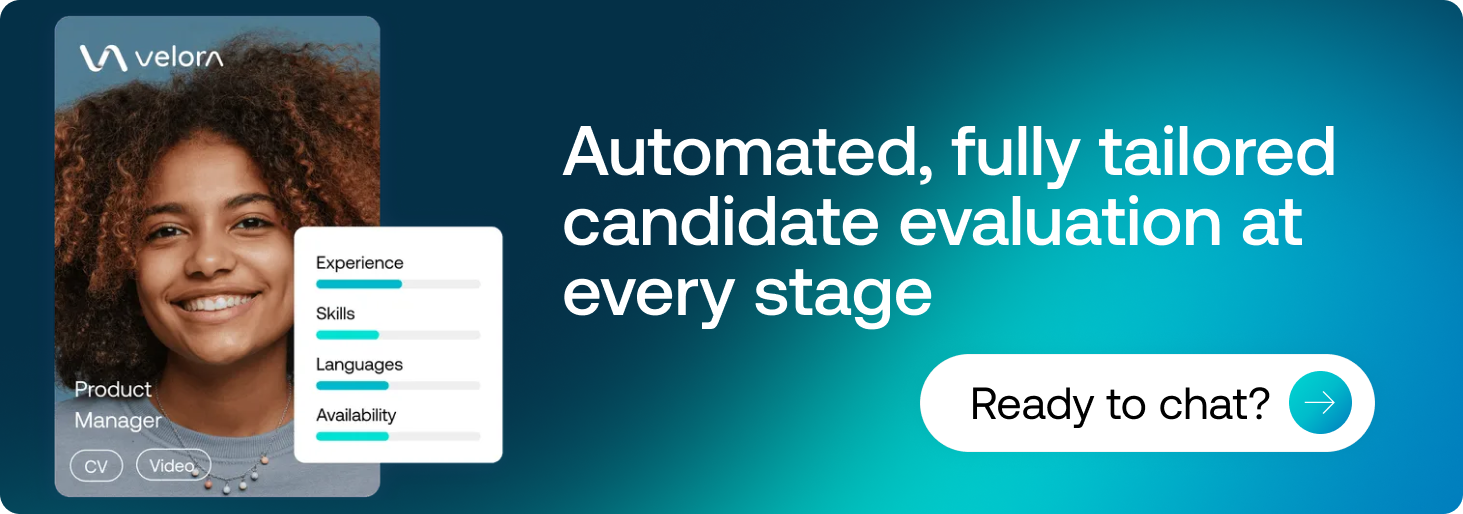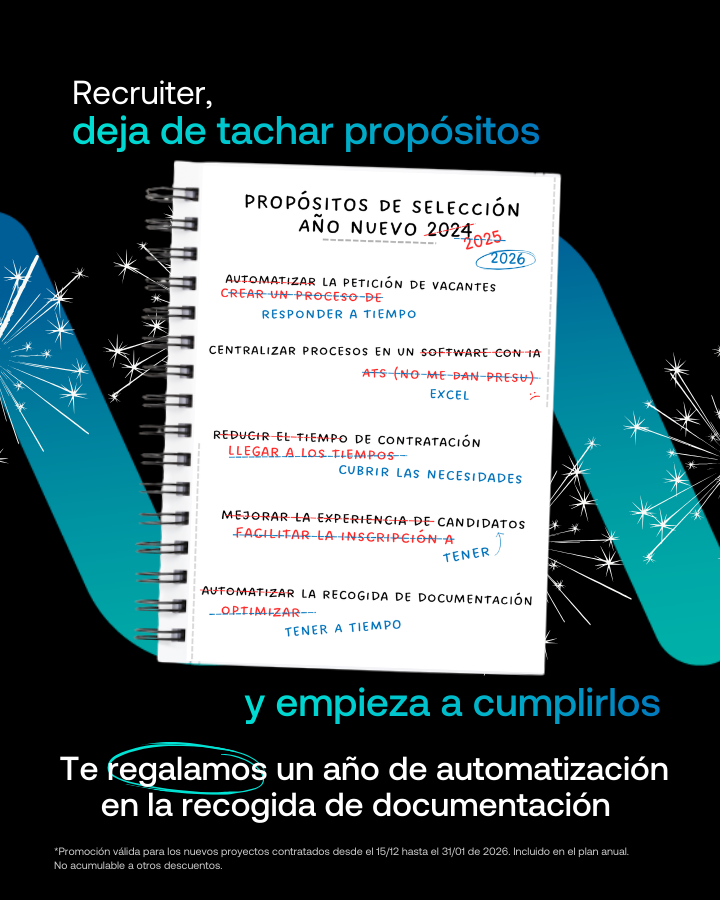Beyond the traditional interview
.jpg)
When a candidate opts for a selection process, they are most commonly prepared with the answers to typical job interview questions. However, Are those really the questions you should ask to get quality information? What's the best approach to discovering a person's true potential?

As a general rule, candidates prepare for job interviews, especially if they are interested in the selection process. But it is also crucial that the professionals who are going to be in charge of the process are prepared, since this stage is vital for the future of the company.

In search of the perfect interview.
With traditional job interview questions, although we can obtain additional information from the candidate beyond the resume, in most cases the profiles are not known in depth. In addition, if the selection process is lengthened, the psychological strain of the human resources manager also increases. Therefore, it is essential to seek an approach that will make the process successful from start to finish.
Before the interview, the candidate's professional training and experience, and even their social networks, will have been reviewed. Now is the time to dig deeper and discover something unique that isn't on your resume. Here's the structure for an interview that will help you explore key aspects of candidates:
Introductory phase.
These initial questions allow us to know the candidate's trajectory, their perspective on the job and their motivations. Some possible questions to ask at this stage are:
How did you discover your passion for this particular area? What aspects do you value in your next job? How would you describe your relationship with your previous manager? What aspects did you dislike about your last job and what did you do to manage them?
Central phase.
This phase can be divided into three subcategories that will allow us to investigate different aspects that interest us about the candidate.
1. Questions about learning.
By asking questions about their interest in acquiring new knowledge, their approach to training and how they have taken advantage of previous learning opportunities, we can assess their willingness to grow professionally. Some proposed questions for this phase are:
How do you demonstrate your proactivity in acquiring new knowledge, whether related to your professional field or others? How important are training plans in a company for you? What was the last course you took and what did you learn from it? Who has inspired you the most in your professional career and why?
2. Questions about adaptability.
By exploring how candidates organize themselves, their experience working as a team and alone, and how they deal with criticism and feedback, we can evaluate their ability to face new scenarios and overcome obstacles. Some questions that can help us in this phase would be:
How do you organize yourself when you have several projects in your hands? What are the benefits and challenges of working alone and as a team? Have you ever worked on a team where someone wasn't doing their best? What did you do in that situation? Have you had to provide difficult feedback to someone? How do you prepare for those kinds of situations?
3- Problem solving questions.
Using questions that pose real situations or specific challenges, we can evaluate the way candidates approach problems, the steps they take to solve them, and how they work collaboratively with others to achieve effective solutions. The questions that can be asked in this phase are:
What has been the biggest challenge you have faced in your professional career and how did you overcome it? In your opinion, what is the difference between a good idea and an exceptional one when developing a project? If they ask you to do something you don't agree with, how do you act and what actions would you take? Based on a case that we have worked on in our company, what would you contribute from your department?

Closing phase.
At the end of the interview, it's important to allow candidates to also express themselves and ask questions. This gives us a more complete view of your interest in the company and the position, as well as your expectations and goals in the short and long term. For this phase, the following questions can be asked:
If you were in my shoes, interviewing someone for this position, what characteristics would you look for? How important has salary been in your career so far? Has that perspective changed over the years? What is your personal mission in your career? Do you have any questions for us?

Remember that these categories and questions are only a guide. You can adapt and customize them according to the specific needs and characteristics of your company and the position you are looking to fill. The ultimate goal is to create an interview environment in which candidates can demonstrate their true potential and provide an enriching experience for both themselves and the recruiter.
.jpg)
Fulfill your selection purposes
Recruiter, fulfill your recruitment purposes in 2026 with the help of Velora. And as a gift, a free year on automatic document request.

Related articles
More articles to inspire your HR strategy









